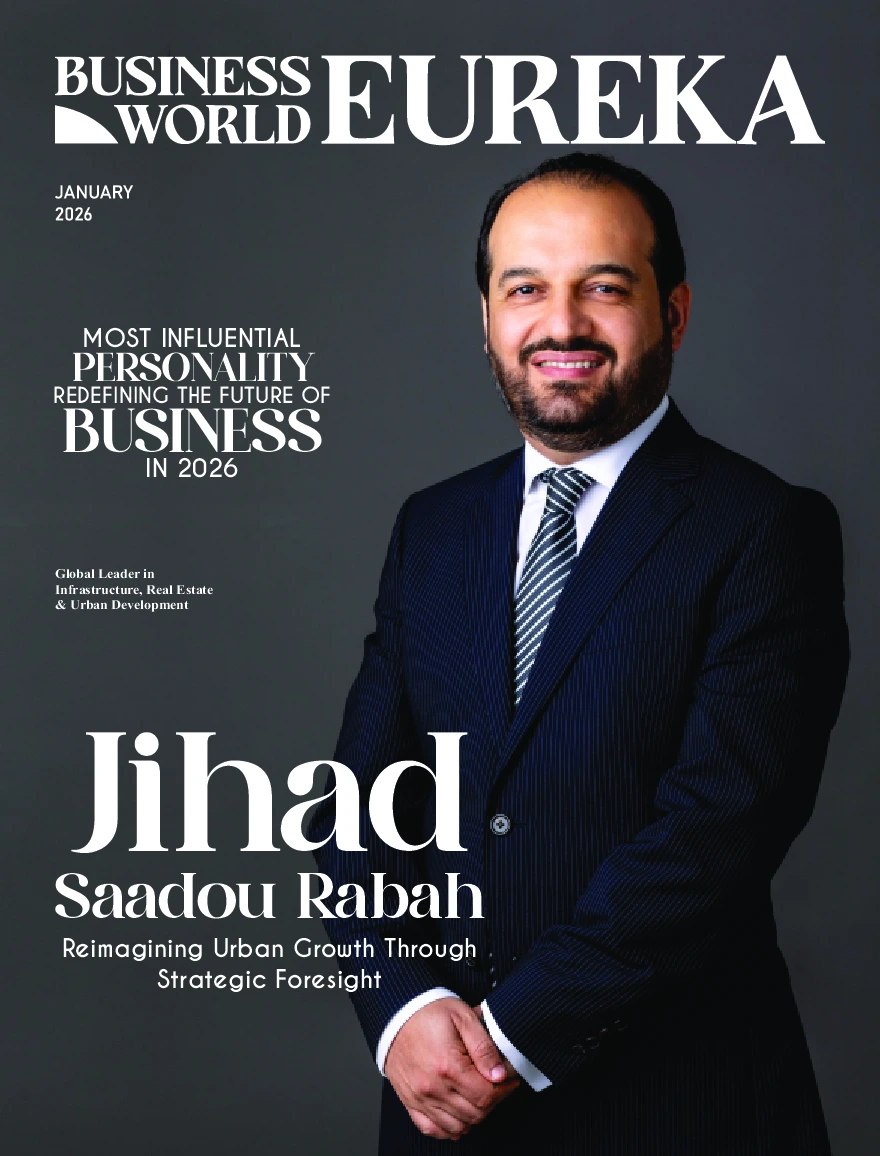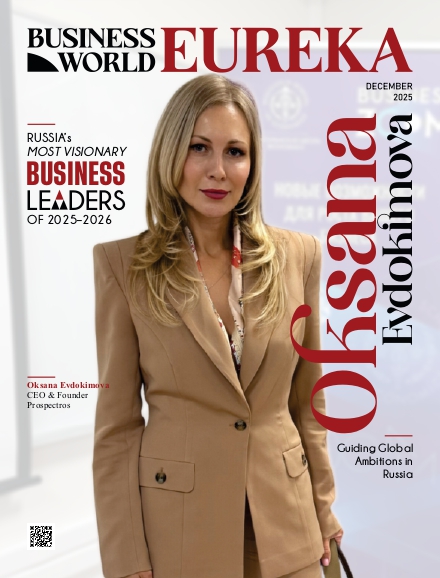Richard Larson: A Visionary Redefining Global Education

Journey of Richard Larson - The Professor Who Made Time Wait
“The real heroes are the ones who teach us how to think, not what to think.”
In a world where attention spans are shrinking and learning often feels rushed, Richard Larson did the impossible, he made time wait.
Long before he earned the nickname “Dr. Queue,” Richard was not just solving problems, he was asking better questions. At MIT, where the brightest minds gather, he stood out not because he was loud, but because he was consistent. Consistently brilliant. Consistently curious. And above all, consistently human.
He began by decoding queuing theory, those frustrating lines we all dread. But for Richard, queues were more than just numbers and formulas. They were about people waiting, waiting for help in hospitals, in cities, in schools. And behind every wait, he saw an opportunity to improve lives.
But his story did not stop with equations. Richard believed knowledge should never be locked in ivory towers. That’s why he launched MIT BLOSSOMS, a project that took high-quality STEM learning to classrooms across the globe, even in places where resources were scarce but dreams weren’t. Through interactive videos, he didn’t just teach students, he sparked wonder.
As a leader in the world of operations research, he didn’t climb the ladder, he built ladders for others. Whether serving as President of INFORMS or mentoring future innovators, Richard led by lifting.
Even now, well past the traditional retirement age, he refuses to slow down. Research, mentorship, impact, he still shows up, still asks questions, still teaches not just the “what,” but the “why.”
Richard is more than an educator. He’s a timeless reminder that real leadership means leaving behind not just achievements, but people who believe they can achieve too.
And that… is the legacy of a life truly well lived.
From Curious Teen to MIT Legend
At the Massachusetts Institute of Technology (MIT), a place known for producing some of the world’s most brilliant minds, Richard’s journey began as an 18-year-old freshman.
With no set path but an eager mind, he leaned into his fraternity’s advice, Electrical Engineering would keep all doors open. It made sense, especially with a father who was an accomplished electrical engineer. That early decision wasn’t just about a major, it became the foundation of a lifelong journey in discovery, purpose, and impact.
A Childhood Wired for Wonder
Growing up, Richard was surrounded by gadgets, wires, and the gentle hum of engineering. His father, Gilbert C. Larson, filled the house with the wonders of electronics, from soundproof music rooms to experimental tools. It was not just a home; it was a laboratory of imagination.
But it wasn’t until college that Richard discovered the subject that would truly define his path, Operations Research, a field that made sense of the world’s chaos with mathematical models and logic.
Humble Beginnings and a Letter That Changed Everything
“I thought they made a mistake,” Richard recalls, reflecting on the day he received his MIT acceptance letter. Sitting in his backyard in Needham, Massachusetts, the disbelief turned into determination.
Before he even attended a single class, he was accepted into Phi Beta Epsilon (PBE), a fraternity that would become a pillar of support and mentorship during his intense academic years. It was there he learned the importance of community and guidance, lessons that would shape how he later mentored others.
A Stack of Crime Books and a Career Twist
As a first-year graduate student, carrying books on criminal justice, Richard caught the attention of Professor Alvin W. Drake. That encounter changed his trajectory forever. What began as a curiosity about criminal behavior turned into a full-blown research initiative, with Richard spending hundreds of hours in police cars to understand crime on the ground.
His work earned him a seat on the President’s National Crime Commission, at just 23, he was the youngest on the Science and Technology Task Force. A mission was born, driven by curiosity and guided by values.
From Theoretical Models to Real-World Solutions
Recognizing the transformative power of education, Richard founded MIT BLOSSOMS (Blended Learning Open Source Science or Math Studies), a platform offering free, high-quality STEM video lessons to high school students worldwide. This initiative reflects his commitment to making education accessible and engaging, particularly in underserved regions.
In 1993, he was elected into the National Academy of Engineering (NAE), a prestigious recognition of his contributions to engineering and education.
Furthering his vision, Richard established the Learning International Networks Consortium (LINC), fostering global collaboration in technology-enabled education. His tenure as Director of MIT’s Center for Advanced Educational Services (CAES) from 1995 to 2003 was marked by efforts to integrate technology into learning, extending MIT’s reach to students across continents.
Whether modeling emergency response systems or enhancing global STEM education, his focus remained clear: make knowledge matter. “There is no conflict between theory and practice,” he insists. “You need boots on the ground and models in the lab.”
Lessons Beyond the Lecture Hall
Richard’s philosophy on learning is simple but powerful: education should last a lifetime. Memorizing for quizzes doesn’t impress him, thinking critically and adapting to change does. Even as AI begins to redefine how students learn and how research is done, Richard remains focused on the human side of knowledge. “AI is a blessing and a curse,” he says. “But nothing replaces the ability to ask the right questions and to think deeply.”
Despite all the recognition, awards, and influence, Richard never compromised his values. “I cannot think of a time when I adjusted my values because of cultural or industry issues,” he says. If something felt misaligned, he walked away. His approach to leadership was always rooted in authenticity, not popularity.
Recognition is a Ripple, Not a Trophy
For him, success is not about titles. It’s about the ripple effect of ideas. It’s about students going on to make the world better. “Recognition comes over time,” he reflects. “It’s not in headlines, it’s in impact.” His proudest legacy lies in the minds he’s helped shape and the lives he’s quietly touched.
While trends come and go, Richard believes that powerful ideas never expire. His own creation, the Queue Inference Engine (QIE), may be labeled as AI today, but its core logic was born decades ago. For him, the intersection of foundational thinking and modern technology is not new, it’s evolution.
Additionally, for him, legacy is not only reflected in the lives he’s touched and the systems he’s improved, but also in the honors bestowed upon him by the academic and professional world. Each award is a quiet acknowledgment of decades spent turning questions into impact:
- 1972 – Urban Police Patrol Analysis, Richard’s groundbreaking book, received the Frederick W. Lanchester Prize by the Operations Research Society of America.
- 2002 – Awarded the George E. Kimball Medal for distinguished service to the profession of operations research.
- 2003 – Honored with the INFORMS President’s Award, recognizing extraordinary contributions to the welfare of society.
- 2017 – Received the Daniel Berg Lifetime Achievement Medal from the International Academy of Information Technology and Quantitative Management for his work in technology innovation, service systems, and strategic decision-making.
Advice to the Bold: Don’t Conform
To the next generation of thinkers, Richard has one message: Dare to think differently. “Following the crowd may get you published,” he says, “but it won’t get you to the mountaintop.” In a world that rewards replication, he champions originality, courage, and a restless curiosity.
Explore more insightful articles, interviews, industry news, and business magazines on our website. Click here to stay informed and inspired!
Latest Editions
-
 Most Influential Personality Redefining the Future of Business in 202605 Feb 2026 magazines
Most Influential Personality Redefining the Future of Business in 202605 Feb 2026 magazines -
 World's Most Inspiring Keynote Speakers to Watch in 2025–2602 Jan 2026 magazines
World's Most Inspiring Keynote Speakers to Watch in 2025–2602 Jan 2026 magazines -
 Russia’s Most Visionary Business Leaders of 2025–202619 Dec 2025 magazines
Russia’s Most Visionary Business Leaders of 2025–202619 Dec 2025 magazines -
 Sheroes: UK's Most Visionary Leader Making Their Mark in the Global Education Landscape, 2025–2602 Dec 2025 magazines
Sheroes: UK's Most Visionary Leader Making Their Mark in the Global Education Landscape, 2025–2602 Dec 2025 magazines -
 Europe’s Most Influential Business Leaders to Watch in 2025-2630 Nov 2025 magazines
Europe’s Most Influential Business Leaders to Watch in 2025-2630 Nov 2025 magazines

